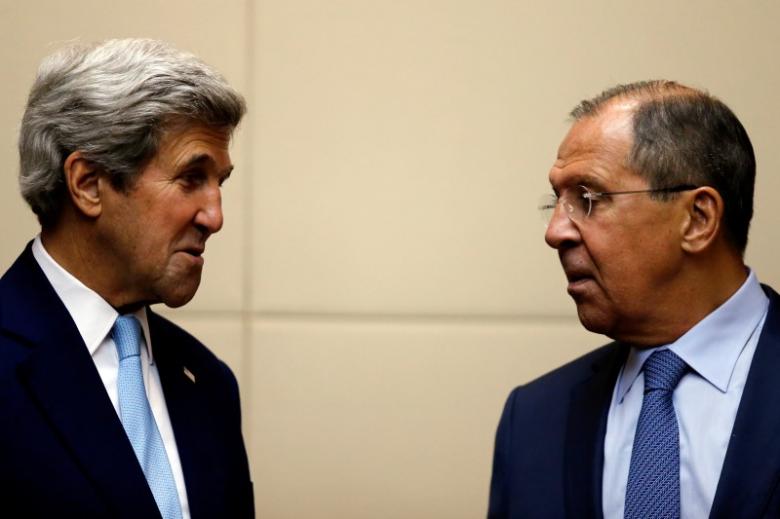Beirut, Geneva- All eyes late on Friday evening were still turned towards Geneva awaiting the concluding statement of the meeting bringing together U.S. Secretary of State John Kerry and his Russian counterpart Sergei Lavrov. The two diplomats have been trying to land an agreement on cooperation in the war-torn Syria.
A U.S. top official said that the U.S. and Russia have made remarkable progress on Friday concerning a comprehensive ceasefire deal in Syria. Yet, procedural details are still being drafted, and it remains unclear whether arriving to a full settlement is possible.
Germany’s Foreign Minister Frank-Walter Steinmeier says that Washington and Moscow are still in the process of reviewing a drafted proposal for a seven to ten-day truce.
The German diplomat clarified that disputes among the two parties are now down to consensus on defining groups belonging to the Syrian opposition and classifying them as either moderate or extremist.
Field wise in Syria, Turkey’s intervention was recently stepped up to back the operation ‘Euphrates Shield’ in its fight against ISIS and outlawed Kurdish forces.
Member of the National Coalition for Syrian Revolutionary and Opposition Forces Ahmed Ramadan told Asharq Al-Awsat newspaper that preparations for establishing a safe zone stretching up to 90 km will demand the delivery and deployment of capable forces that can counter enemy air power and prevent its pounding.
He added that deployed safe zone forces must be qualified and well-equipped to put off militias and terrorists and preventing infiltration of adverse forces.
Pertaining to the current status quo of partakers in the Syria civil war, the reported death of a senior commander of Jabhat Fateh al-Sham Abu Omar Sarakeb on Thursday had cast shadows over the fate of extremists refusing Jabhat Fateh al-Sham’s disassociation with al-Qaeda.
The UK based Syrian Observatory for Human Rights confirmed that air raids hit an Army of Conquest meeting in Aleppo and killed Abu Omar Sarakeb.
